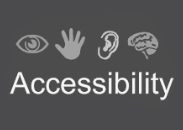In its initial stage, Projected Capacitive (PCAP) touch screens were introduced as a revolutionary technology that not only raised the appeal of touch screen devices but also offered enhanced picture quality, durability and protection to delicate Liquid-Crystal Displays (LCD) inside. Commonly used in consumer electronics like smartphones, PCAP touch screens provide an interface that allows interaction with the application in a more natural way. And, over the years, they have become the most preferred choice for large-size screens, especially for applications where durability, reliability and performance are essentially required.
Projected capacitive touch screens give many more reasons for integrating them into interactive touch devices. Here are a few significant ones:
Advantages of PCAP Technology
Great Performance
Projected capacitive touch screen sensors are intended to offer optimal levels of transmission and touch accuracy. They offer rapid response with touch without compromising accuracy. PCAP touch screens are designed with a glass substrate comprising an ITO or ATO coating fixed in a perpendicular grid pattern consisting of X and Y line elements. A radio frequency field is applied to the grid. So, when a finger or conductive stylus touches the sensor surface, it couples an X element with a Y element in the grid allowing the controller to identify where the touch is.
Multiple Gesture Control
Gestures like zooming, swiping, pinching, and rotating give projected capacitive touch screen technology an upper hand. PCAP touch sensors offer multi-touch operations that enable different gestures to control interactions. Smooth interaction and engaging experience for end-users are the key features considered when developing touch applications. Therefore, manufacturers of various touch devices choose PCAP technology for smoother interactions.
Excellent Clarity
Besides the touch experience, PCAP technology also offers superior display features. It offers high contrast, high transparency and high light transmission compared to its counterpart technologies. As all optical layers in a PCAP touchscreens are bonded together without any air gap, it eliminates internal reflective surfaces. As a result, they offer great optical clarity and are well suited to highly bright environments.
Water-resistant
The construction of projected capacitive touch screens ensures a certain level of protection from water and wet conditions. They include glass-on-glass construction and have the right ingress protection (IP) rating for enclosure compatibility, to provide the water-resistant feature.
Additionally, A D Metro offers a complete line of PCAP products bundled with their patented controllers that are programmed with water rejection and wet tracking capability. These enhancements support the seamless operation of PCAP touch screens in wet conditions.
Robust Touch Solution
Unlike resistive touch screens, PCAP touch sensors are highly durable with great accuracy. Having vandal-proof glass, insulating layers, or screen guards, facilitate an extremely robust solution and prevent damage to the point where it will not function unless the substrate grid gets broken. In some versions, even if the top layer is broken, the sensor will work flawlessly with sensors constructed with a PET film grid bonded to the top glass layer as in the case of smart phones.
Infection Control
Lastly, the most practical advantage of using projected capacitive touchscreens in present conditions is the virus-spread control, especially after the outbreak of COVID-19. They allow conductive stylus or thin gloved operations, which prevent direct contact and help control the spread of pathogens. Moreover, the scratch, abrasion and chemical resistant abilities make PCAP touch screens withstand any cleaning solution and cloth that enable sanitization of the application.
Bottom Line:
The above-mentioned features of Projected Capacitive Touch Screens make them the most ideal solution for a number of touch applications. However, to leverage these benefits and simplify the product development cycle, you must consider A D Metro’s projected capacitive touch screen kit with an ARGON controller. It is an intelligent PCAP controller that automatically detects and adapts to the sensor. This is particularly helpful when you want to integrate PCAP into your product offering but need only one controller to handle all your sensor size requirements.







